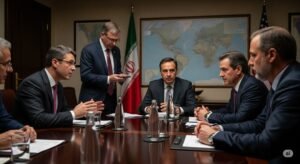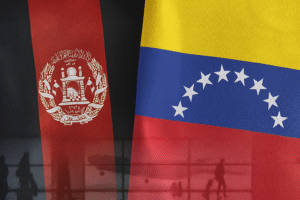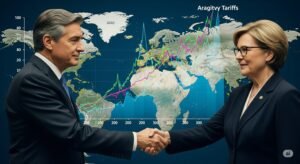Explore the recent US executive order lifting some economic sanctions on Syria, its implications for stability, and what restrictions still remain.
The geopolitical landscape is constantly in motion, and recent developments concerning U.S. policy toward Syria highlight a significant shift. In a move aimed at fostering stability and encouraging investment, an executive order was signed to lift certain economic sanctions that have long impacted Syria. This decision marks a notable change in approach, signaling a potential new chapter for the war-torn nation.
A New Path for Engagement?
For years, Syria has faced extensive international isolation, largely due to U.S. sanctions. The recent executive order, signed on June 30, 2025, by then-President Donald Trump, signifies a deliberate effort to alter this dynamic. The White House indicated that the goal is to support Syria’s journey toward peace and stability, opening avenues for global commerce and attracting investments from neighboring countries and even the United States. This policy pivot follows discussions between the U.S. and Syria’s interim leader, Ahmed al-Sharaa, suggesting a more direct engagement strategy.
What’s Changing and What’s Not?
While the lifting of economic sanctions is a significant step, it’s crucial to understand that it’s not a complete overhaul of U.S. policy. Several critical restrictions remain firmly in place, reflecting ongoing concerns.
Here’s a breakdown:
- Terrorism Designation: Syria continues to be designated as a state sponsor of terrorism by the U.S. This classification carries its own set of limitations and implications for international relations.
- Targeted Sanctions: Sanctions specifically targeting former Syrian President Bashar Assad, his top officials, family members, and key aides remain active. This ensures that individuals deemed responsible for past actions are still held accountable.
- Terrorist Groups: Restrictions against various terrorist organizations operating within Syria, including the group led by al-Sharaa (designated as a foreign terrorist organization), are still enforced.
- Captagon Trade: Sanctions aimed at manufacturers and sellers of Captagon, an illicit amphetamine-like stimulant, will also persist. This highlights a continued focus on combating illegal activities that destabilize the region.
- Caesar Act: A major set of sanctions, known as the Caesar Act, passed by Congress, remains intact. These target anyone conducting business with or providing support to Syria’s military, intelligence, or other suspect institutions. While temporary waivers have been issued in the past, a permanent repeal would require legislative action.
Implications for the Region and Beyond
This nuanced approach by the U.S. aims to strike a balance: easing economic pressure to facilitate recovery and investment while maintaining a firm stance against terrorism and specific individuals. The European Union has also taken similar steps, lifting nearly all of its remaining sanctions on Syria, suggesting a broader international consensus on this new direction.
For American businesses and investors, this shift could present new, albeit carefully monitored, opportunities in a region that has been largely inaccessible. However, the lingering restrictions mean that any engagement will require careful navigation and adherence to remaining U.S. laws and designations. The path to full normalization of relations is still long, but this executive order marks a significant turn in U.S. foreign policy toward Syria. Sources












